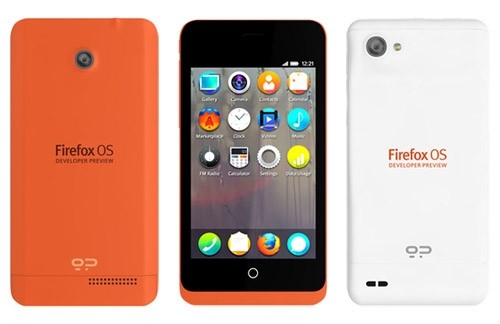Mozilla has just taken the wraps off the first couple of devices designed to run Firefox OS. Developed in conjunction with Geekphone and Telefonica, the phones are not actually intended for the consumer market, but rather developers that want to start building and testing apps for the open source platform.
The lower-end model, introduced as Keon, features a 1GHz Qualcomm Snapdragon S1 7225A processor along a 3.5-inch HVGA touchscreen display, 3MP camera, 512MB RAM and 4GB of internal storage. Meanwhile, the higher end Peak offers a dual-core 1.2GHz Snapdragon S4 chip, 4.3-inch qHD display, dual cameras (8MP rear / 2MP front), the same amount of storage and memory, and a higher capacity battery.

Other typical smartphone features are also present, including microSD support, Wi-Fi, light and proxmity sensors, G-sensor, GPS, and MicroUSB. Both devices will be made available unlocked and Mozilla is promising OTA updates to keep users running the latest version of Firefox OS.
The Keon and Peak will be shown off to developers later this month at Telefonica’s Campus Party Brazil and should go on sale in February, according to Mozilla. There are no details on cost just yet or where exactly you would be able to get one, but Geeksphone says it'll arrive with a price tag "you could never have imagined." The Spanish startup has been around since 2009 as a minor maker of Android phones
With Firefox OS, Mozilla is hoping to change how developers today must re-write their apps to run on the various closed mobile-phone platforms available. Apps are based on HTML 5 but will reportedly still look and feel like a native app with access to underlying phone capabilities like calling, messaging and games.
The first Firefox OS-powered devices are expected to launch in Brazil in early 2013 through Telefonica’s Vivo brand of entry level handsets. TCL Communication Technology (under the Alcatel One Touch brand) and ZTE were revealed as the first manufacturing partners, with operators like Deutsche Telekom, Etisalat, Smart, Sprint, Telecom Italia, and Telenor all committed to offering Firefox OS devices.
https://www.techspot.com/news/51400-firefox-os-developer-handsets-revealed-keon-and-peak.html